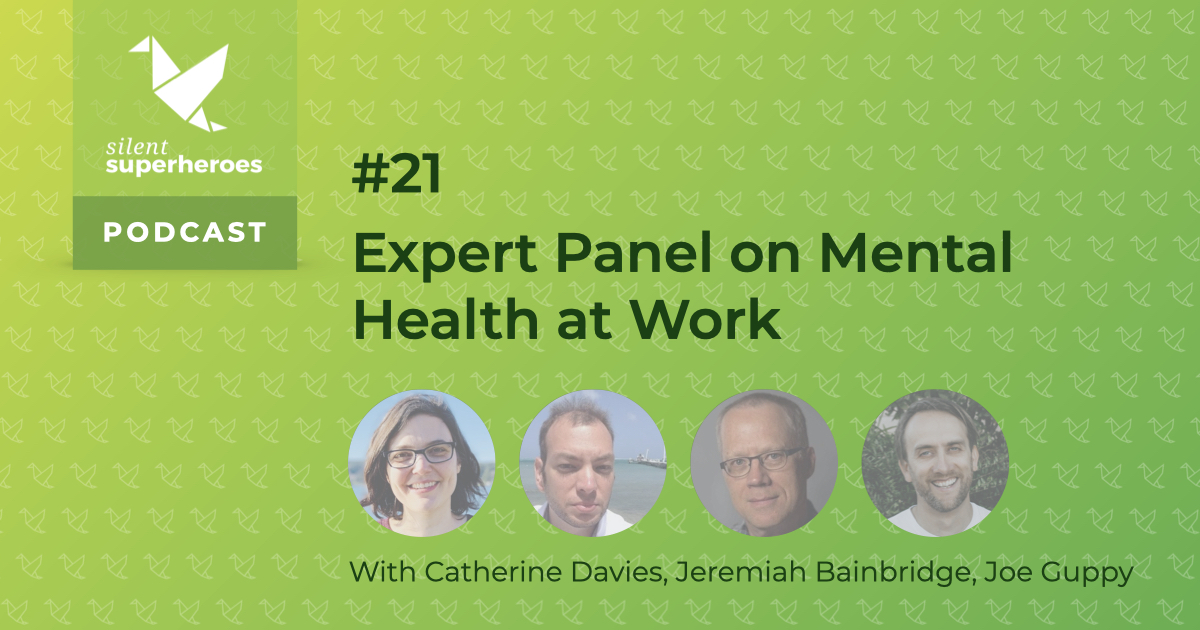In this episode of Silent Superheroes, we’re doing something a little bit different to mix things up. We’ll listen in on a conversation about mental illness at work between 3 people who work in the mental health field. Firstly, we have Catherine Davies who is a licensed psychiatrist. Secondly, we have Joe Guppy, a therapist turned author and teacher. And finally we have Jeremiah Bainbridge, who is a mental health program director with the National Alliance on Mental Illness in Seattle.
Listen To Episode 21
Podcast: Play in new window | Download (Duration: 1:00:33 — 32.9MB)
Show Notes
In their wide ranging conversation, Catherine, Joe and Jeremiah try to define stigma. They also dig into the ways that health benefits can help and hinder mental health care. And finally they generate a cornucopia of ideas about what businesses should be doing to support people who manage mental illness at work.
I want to thank Catherine, Jeremiah and Joe for making the time to record this podcast amongst
Links
- WHO Report on Mental Health in the Workplace (article)
- NAMI Seattle -Jeremiah’s employer (organization)
- Dyad Mental Health – Catherine’s practice (organization)
- Joe Guppy (website)
- My Fluorescent God – Joe’s book (book)
- Long Hours Backfire for People and for Companies (article)
Getting Support
Remember, the people you hear on Silent Superheroes are sharing their opinions about mental health and mental illness. They are not giving advice. For that reason, please consult with your care provider before making a change to your treatment approach.
It’s important to take your mental health seriously. Consequently, if you need to speak to someone you can call 1-800-273-8255, or text crisistextline.org on 741741. Both provide 24×7 confidential counseling to people in the United States. Worldwide visit http://iasp.info/resources/Crisis_Centres/
Because you listened to the podcast, you can help others find it by leaving us a review on iTunes. Or if you don’t use iTunes, leave a review on your favorite podcasting service.



The three professionals talking marked a step forward in bringing mental health issues to a much wider audience hopefully including employers.